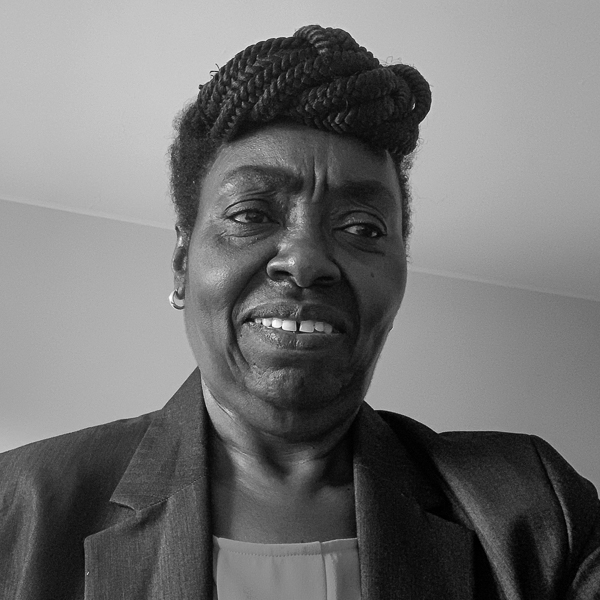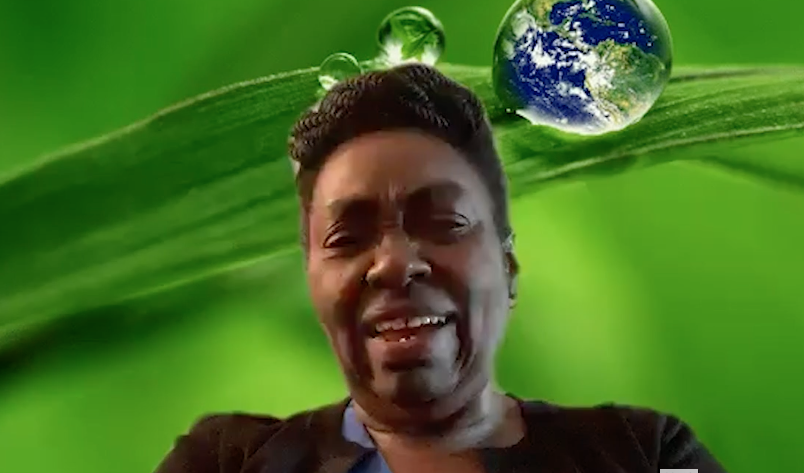
Partnerships are indispensable to making a real change in education: an interview with Joyce Malombe

Interviews
We talk to Joyce Malombe, the newest addition to the Global Business Coalition for Education Executive Board, who brings a wealth of experience of helping children, particularly the most vulnerable, access quality education
Currently serving as Interim Program Director at the Wellspring Philanthropic Fund, Joyce overcame her own disabilities as a child in rural Kenya to become a renowned education expert and university professor in New Hampshire and Nairobi, as well as working for the World Bank, the Ford Foundation and ELMA Philanthropies in a career spanning 30 years.
As we welcome Joyce to Theirworld and the Global Business Coalition for Education, we wanted to ask her a few questions about her experience, what she thinks businesses can do to support education and what most interests her about Theirworld’s and GBC-Education’s work.
How has education impacted your life?
Education totally changed my life. I was born in rural Kenya, in a small village, where there were hardly any schools. But I was still able to go to school. Because of my disabilities, it was very difficult for me to walk to school. I had to wake up very early in the morning, and because of my disability everybody in the village kept asking my parents why they were taking me to school. But my parents were adamant, they took me to school. For the first time I was really able to enjoy life, I could play with other children and I liked school very much.
Despite all the challenges, I was able to go to secondary school after finishing primary school, and then met more people and eventually went to university. This is why I say education changed my life, because I would have never had a chance to get any jobs without education. Opportunities kept opening up because I was able to advance in my education from one stage to another. It was also great to be able to be the one teaching students, when I became a professor at university.
Education has opened a lot of doors for me, and I have worked in education most of my life because I believe this is a lifeline for all children and especially vulnerable children, and children with disabilities who are able to engage socially. Education also opens up opportunities to be able to get jobs and manage your life just like everybody else. I believe education has enabled me to live a normal life, live where I want to live and do the things that I aspired to do. It’s a great privilege for me to help others get quality education, like I did.
What role companies and foundations can play to support education?
Companies and foundations have an indispensable role to play to support education and learning. Because education faces complex problems, we need different actors in the field. One person or one group of people alone cannot solve all the problems that are there.
We need partnerships with companies, partnerships with foundations, partnerships with parents, and partnerships with governments. Foundation funding discovers innovative ways of addressing complex problems, but most foundations are small, and after they have discovered ways of addressing complex issues, they often cannot take them to scale. This is where engagement with the private sector and with companies can make a difference. Businesses can bring their expertise, add value and propel something to the next level. I believe that partnership between these actors not only brings important resources, but also expertise and different ways of thinking, which makes it possible to address the complex situation we are in right now.
‘One size fits all’ does not work in education. We need to be innovating, we need to be changing, we need to be learning from each other. Partnerships are indispensable to making a real change in education moving forward.
What areas of GBC-Education’s work are you the most passionate about
The areas of GBC-Education’s work are very interlinked. I am very interested in strong beginnings, a safe place to learn and inclusive education, and skills. But I must choose a safe and inclusive place to learn as my favorite area. This is mostly because a lot of kids who are living in vulnerable circumstances are further disadvantaged unless they have a safe place to learn.
If they are traumatized in their environment, or if they don’t get what they need, they are pushed further down the line, and won’t be able to fulfil their potential. I am thinking for example of children with disabilities. They are smart kids, but just because somebody cannot manage the steps to enter a classroom they are excluded for life and their whole future is placed in jeopardy. They cannot deal with the barrier that we created.
Children in emergencies just know that they are in danger, they are just afraid of where they are, and they just know that anything could happen to them if they do not get stability in their life. That actually defines their life trajectory forever. They will grow up as individuals with no education, traumatized by what they have experienced. So without a secure and safe environment, it’s very difficult for children to learn or even concentrate.
They need an education of quality, because for children with disabilities or children from a very vulnerable background, education is their only lifeline. Otherwise their future is shattered because they don’t have any other way to participate in society.JTNDc3R5bGUlM0UlMEEuZ3JvcC1zaWdsX2hlYWRlciUyMGltZyU3QiUwQSUwOWRpc3BsYXklM0Fub25lJTIwJTIxaW1wb3J0YW50JTNCJTBBJTdEJTBBJTBBJTNDJTJGc3R5bGUlM0U=
